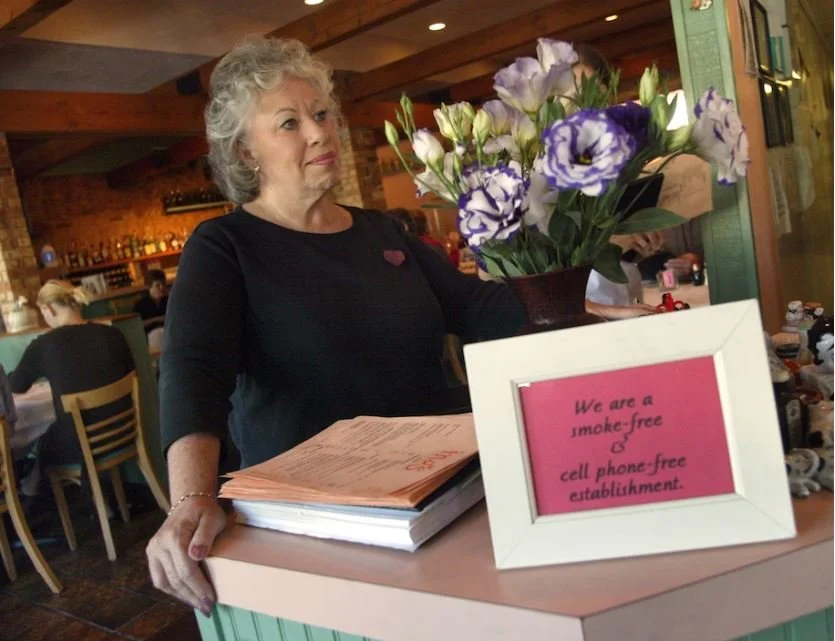“One woman’s story of agony shows why childhood immunizations are so crucial” Ina Pinkney
Source: Opinion: Washington Post By Leana S. Wen
April 8, 2024
“Ina Pinkney was only 18 months old when she contracted polio in 1944. In those days, there was such trepidation of the disease that, as Ina told me, children who were hospitalized were kept away from their parents. Families could visit with them only one hour a week, through a glass window.
Most Americans are unfamiliar with experiences like this. But that’s exactly why we need to revisit Pinkney’s story: It underscores why routine childhood immunizations are so crucial, and why we must prevent the reemergence of diseases such as polio and measles.
One in 200 children infected with polio develops irreversible paralysis. Pinkney, now 81, was one of them. Soon after her diagnosis, her parents realized she could not move her right leg. They tried to help her regain some function. For years, she endured braces and casts, multiple surgeries and even an experimental treatment in which strips of wool were dipped in boiling water and placed directly on her skin.
Ina Pinkney at age 8 in 1950. (Family photo) Source
Over time, Pinkney learned to walk, though with a compensated gait because her right leg was much shorter than her left. Growing up, she rarely played with other kids because she couldn’t run, skip or jump. In school, Pinkney recalls, she had to stay in her seat when everyone else left for fire drills.
‘I was always the outsider,’ she said. ‘I was always the kid that ate alone.’ Other kids referred to her as the ‘crippled girl.’ During high school, she was invited on two dates. ‘They both stood me up because it was a joke,’ she said.
Pinkney also recalls the stigma that was placed on her family. ‘None of the neighbors wanted to come near our apartment door,’ she told me. In those days, fear of polio was omnipresent. ‘I remember very clearly that you couldn’t go to the movies, and you couldn’t go to swimming pools,’ she said. ‘Everyone was terrified’ of their kids coming down with the same fate as Pinkney, or worse. Among those afflicted with paralytic polio, as many as 1 in 10 died because their breathing muscles stopped functioning.
Though polio was an ever-present part of her life, Pinkney did not let it stop her from accomplishing great things and having great adventures. She is best known as the founder of the iconic Chicago restaurant Ina’s Kitchen, which has fed the likes of Wolfgang Puck and Julia Child and serves as the setting for a documentary about her life. She learned to ski, skydive, white-water raft and scuba dive. She also wrote a memoir and cookbook, taught entrepreneurship, and led community efforts to ban smoking and improve environmental sustainability. In her words, she is the ‘causative agent’ of her story, ‘not the victim.’
Today, Pinkney spends much of her time helping other polio survivors. In particular, she is raising awareness of a little-known condition called post-polio syndrome, which can occur decades after recovery from polio. Symptoms include progressive muscle weakness, joint and spinal degeneration and fatigue. As with some other post-infectious conditions, there is no approved treatment or cure.
Pinkney herself suffers from this syndrome. She helps people who are afflicted with it by connecting them with support groups and physicians who have experience treating the condition.
She also travels the country speaking with chapters of Rotary International, a global nonprofit organization committed to polio eradication. ‘I always say that I’ve come here not only to share my story and give you a historical reference to polio in the ’40s, but to thank you for every minute you have spent and every dime you have raised,’ she said. ‘Because we have to end polio, and then we can get to the full-blown work’ of helping polio survivors.
Pinkney is extremely passionate about vaccine advocacy. She thinks often about the fact that she contracted polio 11 years before the polio vaccine was made available. When she encounters people who express hesitancy about routine childhood immunizations, she asks them when they had polio.
‘And they go, Oh, well, I didn’t have polio,’ she told me. ‘And I’d say, ‘Oh that’s right, because you had to get vaccinated to go to school.’
What Pinkney finds most moving is hearing from people when their babies go to the pediatrician to get their shots. ‘To have my friends and their children and their grandchildren call me and say their baby just had the polio vaccine - there are no words,’ she said.
That’s because she knows that each of these kids will be spared the pain she had to endure. And that is the most compelling reason to get vaccinated: to avoid the consequences of severe illnesses that, not so long ago, caused immense agony to children and their families.” Leana S. Wen


